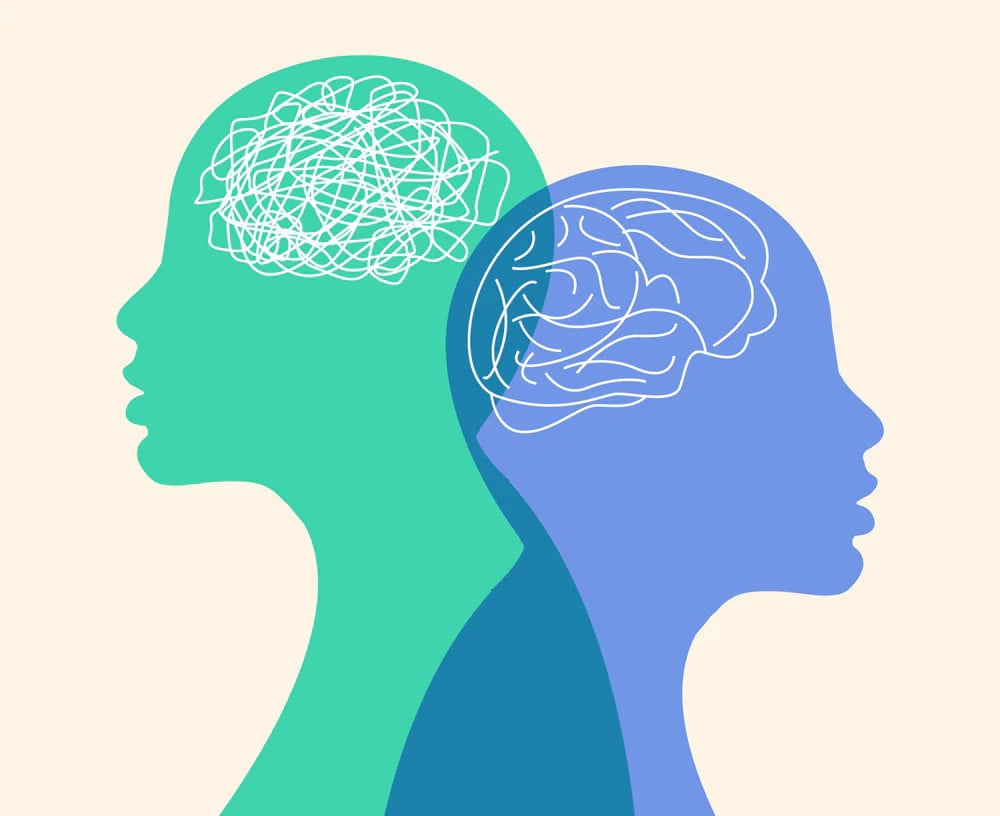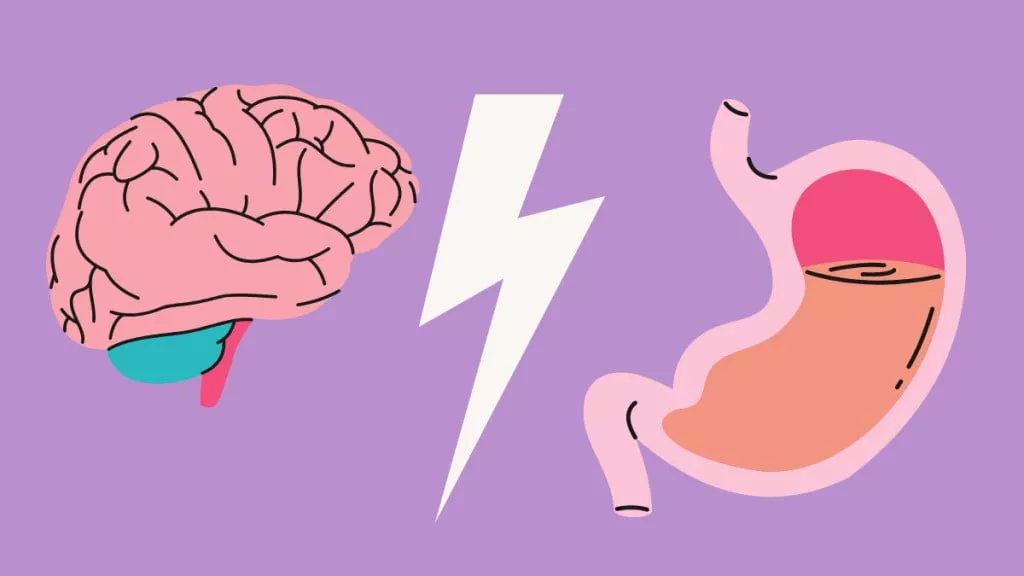Your gut and brain are interconnected, and they communicate with one another in a bidirectional manner. This means that disruptions, or imbalances, in your gut can directly contribute to anxiety and its symptoms. The beneficial bacteria in your gastrointestinal (GI) tract not only help with digestion but recent research suggests that they may also influence your mental health.
Understanding the Gut-Brain Axis

Digbi Health
Your gut houses a network of nerve cells called the enteric nervous system (ENS), which lines the walls of your intestines. This system communicates directly with your central nervous system, which includes the brain and spinal cord. This bidirectional communication—often referred to as the "gut-brain axis"—enables your gut to affect:
1. Mood
2. Cognition
3. Mental health
In return, your brain also impacts your gut function.
How Gut Issues Contribute to Anxiety

Several mechanisms and imbalances in the gut may contribute to anxiety or its symptoms. Below are some key factors:
1. Gut Microbiome Imbalance
Gut dysbiosis refers to an imbalance in the gut microbiome, where harmful bacteria may outnumber beneficial ones. This imbalance can occur due to:
A reduction in beneficial bacteria
Overgrowth of harmful bacteria
A decrease in overall gut bacteria diversity
Such imbalances can lead to heightened anxiety and depression.
2. Inflammation
The gut microbiome can influence inflammation in the body, which is linked to conditions like irritable bowel syndrome (IBS). Persistent GI discomfort, exacerbated by inflammation, may increase feelings of anxiety.
Since there’s a two-way communication channel between the brain and gut, inflammation in the gut can affect brain function, possibly triggering anxiety symptoms.
3. Neurotransmitter Production
Did you know your gut is responsible for producing about 95% of the body’s serotonin? Serotonin is a neurotransmitter often referred to as the "happy hormone" because of its role in regulating mood. When the gut is imbalanced (or in dysbiosis), it may produce less serotonin, contributing to feelings of anxiety.
Can Certain Foods Worsen Anxiety?

Yes, diet plays a significant role in gut health and mental well-being. Diets high in pro-inflammatory foods, particularly sugary and ultra-processed foods, may contribute to worsened anxiety and mental health issues, such as distress and depression.
It’s a good idea to limit your intake of sugary and processed foods, including prepackaged desserts and snacks. Additionally, some individuals may experience worsened anxiety from caffeine, so it’s worth considering reducing its consumption if you notice a correlation.
The Role of Prebiotics in Gut Health and Anxiety
While probiotics supply beneficial bacteria to your gut, prebiotics are the food that feeds those bacteria. A 2023 research review highlighted evidence that suggests probiotics and prebiotics may be beneficial in managing mental health conditions such as depression and anxiety.
Though not all studies show a positive correlation, research supports using pro- and prebiotics for managing certain mental health conditions, offering fewer side effects than conventional medications—and possibly being just as effective.
Managing Anxiety Through Gut Health
Considering the powerful connection between your gut and brain, making dietary changes may help reduce anxiety symptoms. Here are a few strategies:
1.Eat a fiber-rich diet:

A diet rich in fiber may help reduce IBS symptoms, which can, in turn, alleviate anxiety. Foods such as broccoli, oats, berries, and bananas are excellent sources of fiber.
2.Incorporate omega-3 fatty acids:

Higher omega-3 intake has been linked to improved anxiety levels. Try eating more avocados, salmon, tuna, and plant-based oils.
3.Try probiotic-rich foods:

Foods like yogurt and fermented products provide probiotics, which help balance your gut microbiome. Probiotics are also available in supplement form, but it’s important to consult with your doctor before starting any new supplements, especially if you are on other medications.
4.Manage stress:

Chronic stress can negatively impact your gut microbiome, triggering the release of harmful toxins and hormones. Reducing stress through activities like journaling, exercise, reading, and meditation may help keep your gut and mental well-being balanced.
If digestive issues and anxiety persist, consider consulting a doctor or a registered dietitian who can offer a personalized treatment plan.
The Takeaway
Your gut and brain share a dynamic, two-way connection. The enteric nervous system in your gut produces neurotransmitters that can influence brain activity, and your brain can impact gut function. As a result, an imbalanced gut may contribute to anxiety or anxiety-related symptoms.
By improving your gut health through lifestyle changes—such as consuming a diet rich in fiber, probiotics, and omega-3s, managing stress, and avoiding inflammatory foods—you may be able to reduce symptoms of anxiety.









COMMENTS
Comments are moderated and generally will be posted if they are on-topic and not abusive.
For more information, please see our Comments FAQ